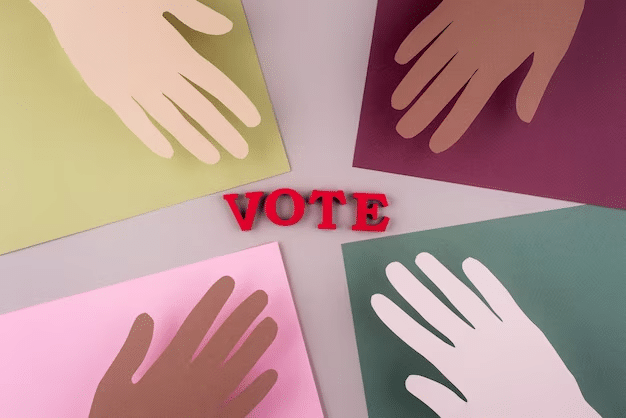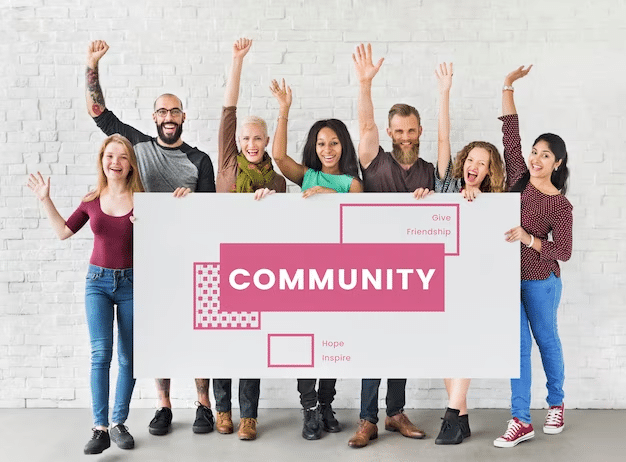Exploring the Four Types of Civic Engagement: Empowering Democracy
Civic participation plays a vital role in strengthening democratic societies by encouraging active participation and collective action. In this article, we will delve into the four categories of civic participation, exploring their significance and impact. Understanding these categories can inspire individuals to become more actively involved in their communities and contribute to the betterment of society.
Why is Civic Engagement Important?
Civic engagement holds immense importance in society as it serves as a cornerstone of democratic governance and empowers individuals to actively participate in shaping their communities. Here are some key reasons why civic participation is vital:
- Social Cohesion: Youth civic participation brings people together, fostering a sense of belonging and social cohesion within communities. When individuals engage in activities such as volunteering, participating in community projects, or attending public meetings, they develop connections with others who share common interests and public concern. This social bonding strengthens community ties and builds trust among citizens.
- Public Accountability: Civic engagement acts as a check on power and promotes public accountability. When citizens actively participate in political processes, such as voting in elections or engaging in policy advocacy, they hold elected officials and institutions accountable for their actions. This accountability helps ensure that decisions are made in the community’s best interest and that the people’s voices are heard.
- Individual Empowerment: Engaging in civic activities empowers individuals by giving them a voice and agency in matters that affect their lives. It provides an opportunity to express opinions, contribute to decision-making processes, and influence policies that shape their communities. Civic engagement encourages individuals to take ownership of their role as active citizens, leading to a greater sense of personal efficacy and empowerment.
- Enhanced Public Policy: Civic engagement plays a crucial role in shaping public policy. Through activities like lobbying, running for office, or participating in public consultations, individuals can influence the development and implementation of policies that address societal issues. When citizens actively engage in political processes, policy decisions become more inclusive, reflective of diverse perspectives, and better aligned with the needs and aspirations of the community.
- Social Progress and Equity: Youth civic engagement, particularly in the realm of social justice, is instrumental in driving social progress and promoting equity. When individuals engage in activities like advocating for policy change, supporting marginalized groups, or participating in protests, they contribute to challenging systemic injustices and promoting equality. By amplifying marginalized voices and addressing societal inequalities, civic participation paves the way for a fairer and more just society.
- Stronger Democracy: Civic engagement is the lifeblood of a vibrant and robust democracy. A thriving democracy requires active citizen participation, informed decision-making, and open dialogue. When citizens engage in political, community, civic skills, and social justice activities, they contribute to a more informed and engaged citizenry. This, in turn, strengthens democratic institutions, encourages political representation, and promotes a government that is responsive to the needs and aspirations of its people.
Learn about civic participation and instantly share insights with others using Instant Input. Inspire engagement for positive change.
Type One: Political Engagement
Political engagement refers to active participation in political processes, institutions, and activities that influence policy-making and governance. It encompasses various actions undertaken by individuals to exercise their political rights, express their opinions, and shape the political landscape. Political engagement is crucial for the functioning of a democratic society, as it allows citizens to have a direct impact on the decisions that affect their lives.
Examples of political engagement activities in the USA include:
- Voting: Participating in elections by casting votes for candidates or ballot measures is one of the fundamental ways individuals engage politically. By exercising their right to vote, citizens have the power to elect representatives who align with their values and policies, thereby influencing the direction of governance.
- Lobbying: Lobbying involves advocating for specific issues, causes, or policies to elected officials, government agencies, or legislative bodies. Individuals or interest groups engage in lobbying to influence decision-makers by providing information, making persuasive arguments, and mobilizing support. Lobbying plays a significant role in shaping policies and legislation.
- Running for Office: Political engagement can take the form of individuals running for public office at various levels, from local government positions to national representation. By seeking elected positions, citizens can directly participate in governance, shape policies, and represent the interests of their constituents.
- Joining Political Campaigns: Engaging in political campaigns by volunteering, making donations, or working as campaign staff enables individuals to support candidates or causes they believe in. Campaign activities involve mobilizing voters, raising awareness, and advocating for specific policies or candidates, thus influencing the electoral process.

Type Two: Community Engagement
Community engagement refers to active involvement and participation in activities that promote the betterment of local communities. It involves individuals coming together to address community needs, improve the quality of life, and foster social connections. Community engagement is centered around building relationships, collaborating with others, and taking collective action to create positive change at the local level.
Examples of community engagement activities in the USA include:
- Volunteering: Volunteering entails offering one’s time, skills, and resources to support community organizations, non-profit groups, or initiatives that serve the community. It can involve activities such as helping at a local food bank, tutoring students, participating in environmental clean-ups, or assisting in community events. Volunteering contributes to addressing community needs and building social capital.
- Neighborhood Improvement Projects: Community engagement often takes the form of neighborhood improvement projects aimed at enhancing the local environment and infrastructure. These projects can include initiatives such as community gardening, beautification efforts, park renovations, or neighborhood watch programs. Such activities foster a sense of pride, ownership, and collective responsibility among community members.
- Participating in Community Organizations: Engaging with local community organizations allows individuals to actively contribute to the decision-making and activities that shape their community. Joining neighborhood associations, community centers, or grassroots organizations provides opportunities to address community concerns, plan events, advocate for local issues, and collaborate with others who share similar goals.
- Attending Public Meetings: Community engagement can involve attending public meetings, town halls, or forums where community members gather to discuss local issues, share perspectives, and provide input to local decision-makers. Active participation in these meetings allows individuals to voice their concerns, offer suggestions, and influence policy decisions that affect their community.

Type Three: Civic Skills Engagement
Civic skills engagement refers to the active development and application of skills necessary for effective participation in public life and civic affairs. It involves acquiring and honing a range of skills that enable individuals to navigate complex civic issues, engage in informed decision-making, and contribute meaningfully to public discourse and civic activities. Civic skills engagement empowers individuals to be active and informed citizens, equipped with the tools necessary to shape their communities and society.
Examples of civic skills engagement in the USA include:
- Civic Education: Civic education focuses on teaching individuals about their rights, responsibilities, and the functioning of democratic systems. It involves learning about the principles of democracy, government structures, the rule of law, and the importance of active citizenship. Civic education equips individuals with the knowledge needed to understand and engage in civic and political processes.
- Public Speaking: Developing effective public speaking skills is essential for civic participation. Public speaking enables individuals to articulate their perspectives, advocate for issues they care about, and influence public opinion. It plays a crucial role in communicating ideas, engaging with diverse audiences, and participating in public debates and forums.
- Critical Thinking: Civic skills engagement emphasizes the development of critical thinking skills. Critical thinking enables individuals to analyze information, evaluate evidence, and make informed judgments. It empowers citizens to engage in reasoned and evidence-based discussions, critically evaluate policies and proposals, and contribute to well-informed decision-making processes.
- Leadership Training: Leadership training provides individuals with the skills and knowledge to take on leadership roles within their communities. It focuses on developing leadership qualities such as effective communication, collaboration, problem-solving, and decision-making. Leadership skills empower individuals to initiate positive change, mobilize others, and work toward community goals.

Support marginalized groups, advocate for change, and raise awareness for social justice. Use Instant Input to instantly share your support and ideas.
Type Four: Social Justice Engagement
Social justice engagement refers to active involvement in efforts aimed at addressing systemic inequalities, promoting equity, and advocating for fairness in society. It involves individuals and groups taking action to challenge discriminatory practices, advocate for policy change, and support marginalized communities. Social justice engagement seeks to create a more inclusive, just, and equitable society by addressing disparities and promoting equal opportunities for all.
Examples of social justice engagement in the USA include:
- Protesting: Protesting is a form of social justice engagement that involves public demonstrations to bring attention to social issues and demand change. Protests can be organized to highlight racial injustice, gender inequality, economic disparities, or other forms of systemic discrimination. They serve as a platform for collective action and drawing public awareness to pressing social justice concerns.
- Advocating for Policy Change: Engaging in policy advocacy is a crucial aspect of social justice engagement. This can include lobbying elected officials, participating in public hearings, and supporting legislation that addresses systemic inequalities. Advocacy efforts aim to influence policy decisions and promote laws and regulations that advance social justice principles and protect marginalized communities.
- Supporting Marginalized Groups: Social justice engagement involves supporting marginalized communities and amplifying their voices. This can include engaging in allyship, providing resources and assistance, and advocating for the rights and well-being of marginalized groups. Supporting organizations and initiatives that work towards social justice and equity is also a part of this engagement.
- Raising Awareness and Education: Social justice engagement includes raising awareness about social issues and promoting education to foster understanding and empathy. This can involve sharing information, organizing workshops or seminars, and engaging in conversations to promote dialogue and challenge misconceptions. By promoting awareness and education, social justice engagement seeks to change hearts and minds and create a more informed and empathetic society.

How to Get Involved in Civic Engagement
Getting involved in civic participation is an empowering way to contribute to your community and shape a better future. Here are different ways individuals can get involved in each category of civic participation, along with the role of educational institutions, community organizations, and online platforms in promoting and facilitating civic participation.
How to Get Involved in Political Engagement
- Register to vote and participate in local, state, and national elections.
- Stay informed about political issues and candidates.
- Join or support political campaigns that align with your values.
- Write letters or make phone calls to elected officials expressing your concerns or opinions.
- Attend town hall meetings, public hearings, or community forums to engage with elected representatives and voice your ideas.
Role of educational institutions, community organizations, and online platforms
- Educational institutions can offer courses or workshops on civics and political processes.
- Community organizations can organize voter registration drives, candidate forums, and educational events on political issues.
- Online platforms can provide information on candidates, host political discussions, and facilitate voter registration.
How to Get Involved in Community Engagement
- Volunteer for local organizations, charities, or national and community service projects.
- Participate in neighborhood clean-up events or beautification initiatives.
- Join local community associations or organizations that address specific community needs or interests.
- Attend community events, fairs, or cultural celebrations to connect with fellow community members.
Role of educational institutions, community organizations, and online platforms
- Educational institutions can collaborate with community organizations to offer service learning programs or community engagement opportunities.
- Community organizations can provide volunteer opportunities, organize community events, and foster community connections.
- Online platforms can connect individuals with local volunteer opportunities, and community organizations, and provide resources for community engagement.
How to Get Involved in Civic Skills Engagement
- Enroll in civic education courses or workshops that focus on developing civic skills such as critical thinking, public speaking, or leadership.
- Participate in public speaking events, debates, or discussions on civic issues.
- Engage in leadership training programs or join student government organizations.
- Take part in civic engagement activities that promote critical thinking and analysis, such as policy analysis or problem-solving workshops.
Role of educational institutions, community organizations, and online platforms
- Educational institutions can incorporate civic education and skills development into their curriculum.
- Community organizations can provide workshops or mentorship programs for developing civic skills.
- Online platforms can offer courses, resources, or webinars on civic skills development.
How to Get Involved in Social Justice Engagement
- Join or support grassroots organizations working towards social justice causes.
- Participate in peaceful protests, rallies, or marches.
- Educate yourself and others about social justice issues through reading, attending workshops, or watching documentaries.
- Advocate for policy change by writing letters to policymakers, signing petitions, or participating in advocacy campaigns.
Role of educational institutions, community organizations, and online platforms
- Educational institutions can host workshops, seminars, or courses on social justice issues.
- Community organizations can organize advocacy campaigns, provide resources on social justice topics, and facilitate community discussions.
- Online platforms can serve as a hub for information-sharing, organizing campaigns, and connecting individuals with social justice organizations.
Engage now using Instant Input! Explore civic participation categories and take immediate action in your community. Volunteer, vote, and advocate instantly for positive change.
What Is the Future of Civic Engagement in the USA?
Civic engagement is an ever-evolving landscape influenced by societal changes, technological advancements, and shifting priorities. Read more about it in the blog of Instant Input. Here is an overview of current trends shaping citizen participation and potential challenges and opportunities for its future in the USA:
- Digital Transformation: The rise of digital platforms and social media has transformed civic participation by providing new avenues for communication, mobilization, and organizing. Online platforms enable individuals to connect with like-minded individuals, access information, and engage in virtual activism. The future of civic participation will continue to be intertwined with digital technology, allowing for broader reach and more efficient communication.
- Youth Engagement: There has been a growing recognition of the importance of engaging young people in civic activities. Organizations and educational institutions are increasingly focusing on empowering and educating young citizens, as they represent the future of democracy. The future of civic participation lies in fostering youth participation, providing platforms for their voices to be heard, and integrating their perspectives into decision-making processes.
- Intersectionality and Social Justice: Civic engagement is becoming more inclusive and intersectional, recognizing the interconnectedness of social issues and the need for comprehensive approaches. The future of civic participation will continue to emphasize social justice, equity, and addressing systemic inequalities. Efforts will be directed toward amplifying the voices of marginalized communities and advancing inclusive policies.
- Mobilization through Crisis: Recent crises, such as the COVID-19 pandemic and social justice movements, have sparked increased civic participation. During times of crisis, individuals and communities have demonstrated resilience, adaptability, and a desire for positive change. The future of civic participation will involve harnessing this mobilization energy, translating it into sustainable action, and addressing the root causes of societal challenges.
Challenges:
- Apathy and Disillusionment: Apathy and disillusionment with traditional political processes may challenge civic participation. Some individuals may feel disconnected from political institutions, leading to disengagement. Overcoming apathy and fostering a sense of agency and efficacy will be crucial for sustained civic participation.
- Inequitable Access: Unequal access to resources, information, and opportunities can hinder civic participation. Bridging the digital divide and addressing socioeconomic disparities are important for ensuring equal participation in civic activities.
- Polarization and Division: Political polarization and deepening divisions within society can create barriers to productive civic participation. Building bridges across ideological differences and promoting constructive dialogue will be essential to foster effective collaboration and collective action.
Opportunities:
- Collaborative Approaches: Collaborative platforms and networks that bring together individuals, organizations, and institutions can foster collective impact and encourage cross-sector partnerships. Collaborative approaches provide opportunities for diverse stakeholders to work together towards common goals.
- Innovative Technologies: Advancements in technology, such as artificial intelligence and data analytics, can enhance civic participation by providing tools for better information dissemination, data-driven decision-making, and participatory governance.
- Grassroots Activism: Grassroots movements and community-led initiatives have the potential to drive significant change. Empowering individuals and communities at the local level and supporting grassroots activism can lead to more impactful civic participation.
With Instant Input, you can spark conversations and ignite a wave of civic participation. Share your knowledge and make a difference today!
Conclusion
Civic engagement strengthens democratic societies by empowering individuals to shape their communities. We explored four categories: political, community, civic skills, and social justice engagement. Each category offers unique ways to participate and make a difference. It is crucial to understand and engage in various forms of civic activities to promote social cohesion and personal agency. Get involved through voting, volunteering, developing skills, and supporting causes. Embrace the diversity of civic participation and join the collective effort towards an inclusive and just society. Start making a positive impact in your community today. For this purpose you can use Instant Input.
FAQs
The article highlights four main categories of civic participation: political engagement, community engagement, civic skills engagement, and social justice engagement. Each category involves different activities and aims to promote active participation in various aspects of civic life.
The popularity of civic participation categories may vary based on individual interests, current social issues, and cultural context. However, political engagement, such as voting and participating in elections, tends to be widely recognized and practiced. It is important to note that the significance of each category may differ depending on specific communities and contexts.
Education and awareness are not classified as specific categories of civic participation in this article. However, they are integral components and cross-cutting themes within all categories of civic participation. Education and awareness encompass activities such as civic education, public discussions, workshops, and raising awareness about social issues, which contribute to fostering an informed and engaged citizenry.
Activism and advocacy are both essential forms of civic engagement, but they differ in their approaches. Activism often involves direct action, such as protests, rallies, or civil disobedience, to bring attention to social issues and demand change. Advocacy, on the other hand, focuses on promoting policy changes and influencing decision-makers through lobbying, grassroots campaigns, and public awareness efforts. Both activism and advocacy have unique strengths and can complement each other in achieving social change. The choice between them depends on the specific goals, context, and individual preferences.
The main categories of civic engagement outlined in the article are:
- Political engagement.
- Community engagement.
- Civic skills engagement.
- Social justice engagement.
These categories provide a framework to understand the different dimensions of civic engagement and the diverse ways in which individuals can participate in public life.







